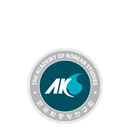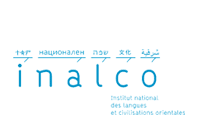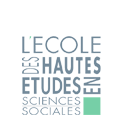Actualités
Actualités
13th Korean Studies Graduate Students Conference in Europe 2016
Copenhagen, Denmark
The KSGSC committee is pleased to announce the 13th convention for graduate students, hosted by the University of Copenhagen, Department of Cross Cultural and Regional Studies (located in Amager; metro: Islands Brygge). The conference aims to give graduate students in all Korea-related fields an opportunity to present their research, share academic interests, and strengthen ties with other junior scholars.
This conference now in its 13th edition will follow the KSGSC’s history marked by successful previous conventions at Ruhr University, Bochum (2004), SOAS, London (2005), the Oriental Institute, Prague (2006), Edinburgh University (2007), Leiden University (2008), Moscow State University (2009), Babes-Bolyai University (2010) and Maison de l’Asie, Paris (2011), University of Warsaw (2012), University of Helsinki (2013), Saint Petersburg State University (2014) and the University of Malaga (2015).
The convention is organized by the KSGSC committee and is funded by the Academy of Korean Studies.
Venue and Dates
Venue: University of Copenhagen, Denmark
Dates: 21st September. – 24th September 2016
Schedule:
21st September.: Arrival and Check in
22nd September.– 23rd September: Conference (Full day)
24th September: Conference until 2PM
Eligibility and Support
Eligible Applicants: MA students, PhD students, and post-docs who have received their PhD in the last two years. The conference is open to applicants from outside Europe but preference in the selection process will be given to students studying at European universities.
Accommodation and Meals: Accommodation and meals will be provided to all accepted participants.
Transport: We aim to offer the accepted participants from within Europe (i.e. who are based at a university in Europe) a transport grant of around 130 Euro. Please, note that this is not a confirmed amount and may vary. Unfortunately, due to the restricted budget, we are not able to offer grants to participants from outside Europe. Participants are encouraged to seek financial support from their own universities.
*PLEASE NOTE: Participants who wish to receive a grant will have to send their ticket and/or receipt by August 1st.
Presentations and Papers
All successful applicants will be expected to give a 30 minute presentation (20 minutes presentation+10 minutes Q&A) and will have to submit their full paper (5-7 pages) by August 1st
Application and Submission of Abstracts
Applicants should submit the following information by e-mail to: ksgsc2016@gmail.com :
1) your full name as you would like it to appear in the abstract booklet
2) contact info (e-mail and telephone)
3) major area of study (region and discipline)
4) title of your paper
5) one-page (500 words max.) abstract in print-ready format, including your name and institution
The file with the paper & the information should be named as follows: LastnameNameKSGSC16.doc (e.g. JohnsonPeterKSGSC16.doc) At the KSGSC’s AGM in 2015 it was decided that the KSGSC would accept applications and presentations in both English and Korean from 2016 onwards. We ask all applicants who wish to submit an abstract in Korean for a presentation in Korean to also submit a translation of their abstract in English as well as the Korean original. We do not expect Korean language paper submissions to also offer an English translation of their entire paper, though we at the KSGSC would certainly welcome them.
You will be sent a confirmation that your application has been received. If you do not receive a confirmation within 5 days after you sent it, please, send your application over again.
Application Period
The deadline for applications is April 30th 2016.
We will contact all applicants by the middle of May regarding the acceptance of their application.
Cancelling Your Participation
We would like to receive applications only from those who are definitely able to attend the convention. Please, bear in mind that applicants who confirm and then later cancel their participation potentially deprive others of the chance of attending and lead to waste of KSGSC resources.
*Please, note that any participants who cancel after July 15th may be liable to pay the hotel expenses and may be restricted from attending future KSGSC conferences.
Organizer contact details: e-mail: ksgsc2016@gmail.com (The KSGSC committee)
IMPORTANT DATES for the Convention
Convention dates: Sept. 21st – September 24th 2016
Application deadline: April 30th, 2016
Ticket submission: by 1st August, 2016
Submit your full paper: by 1st August, 2016
Last date to cancel your participation: 15th July, 2016
Deciphering Sino-Korean atlases and Japanese maps
Current Research Problems in East Asian Cartography Studies
21 mars 2016 de 9h30 à 17h30
EHESS / salle 640 (6e étage)
190 avenue de France 75013 Paris
Contact : noemi.godefroy@ehess.fr
La parution récente d’ouvrages collectifs et transdisciplinaires sur la cartographie asiatique matérialise l’intérêt transversal des documents cartographiques pour les recherches en sciences humaines et sociales. Si l’importance de tels documents n’est plus à démontrer, en particulier dans le cas des recherches portant sur les mondes asiatiques pré-modernes, il n’en demeure pas moins que la compréhension du contenu des cartes sino-coréennes et japonaises nécessite une analyse qui s’éloigne du prisme des standards de la cartographie européenne moderne. En effet, ces cartes constituent une mine de données qui n’ont pas pour vocation la représentation de la réalité topographique d’un espace, mais une représentation de son organisation cosmogonique, cosmologique, politique, religieuse, pratique, historique, civilisationnelle en termes spatiaux.
Ces deux journées d’étude (21 mars 2016 et automne 2016), coordonnées par le Centre Japon et le Centre Corée, ont pour but de mettre en lumière les grilles de lecture spécifiques aux cartes asiatiques, à la lumière des traditions cartographiques et des référents culturels propres à l’Asie, mais également à travers l’appréciation des éléments cartographiques endogènes et exogènes à la Chine, à la Corée et au Japon.
En 2014, l’Assemblée nationale a publié un rapport prédictif sur l’évolution de la population sud-coréenne. Celui-ci prévoyait la naissance du dernier Sud-Coréen, dans le Gyeonggi-do, en 2621. Il n’y aurait plus ensuite, au terme de l’existence de ce dernier, qu’à éteindre les lumières ! À un horizon aussi lointain, les projections démographiques relèvent avant tout de la futurologie. Cette anecdote confirme cependant le résultat des sondages d’opinion. Le vieillissement de la population est une préoccupation majeure pour huit Sud-Coréens sur dix. Sa vitesse est sans précédent. Alors que, en France, cent quinze années se sont écoulées pour que la part des plus de 60 ans passe de 6 à 12 %, cette évolution s’est faite en vingt années au Japon, et se fera en moins de vingt ans en Corée du Sud !
Lire la suite et télécharger la publication sur le site de Korea Analysis.
Vous pouvez également télécharger les articles de ce numéro sur le site du Réseau des études sur la Corée.
Dans le cadre de l’année croisée France-Corée
Paris bibliothèques organise un cycle de rencontres-débats-projections autours de la Corée.
Jeudi 10 mars 2016 à 19h30
Bibliothèque Batignolles
18 rue des Batignolles 75017 Paris
Rencontre avec Juliette Morillot, spécialiste de la Corée du Nord, ancienne directrice de séminaire sur les relations intercoréennes à l’Ecole de guerre. Auteur de nombreux ouvrages sur les deux Corées, parmi lesquels, Evadés de Corée du Nord, avec Dorian Malovic (éd. Belfond, réed. 2011). Modérée par Stéphane Lagarde, grand reporter au bureau Asie de RFI et rédacteur en chef adjoint d’Asialyst (www.asialyst.com).
Quatre années après le décès de Kim Jong-il et l’arrivée au pouvoir de son fils Kim Jong-un, qu’en est-il de la Corée du Nord ? Comment interpréter les régulières rodomontades d’un régime qui sans cesse souffle le chaud et le froid, appelant à la paix sur la péninsule tout en en menaçant la stabilité par des provocations nucléaires? Plongée dans l’histoire commune et la réalité douloureuse d’un peuple déchiré par une frontière, dernière balafre de la guerre froide.
Pages








